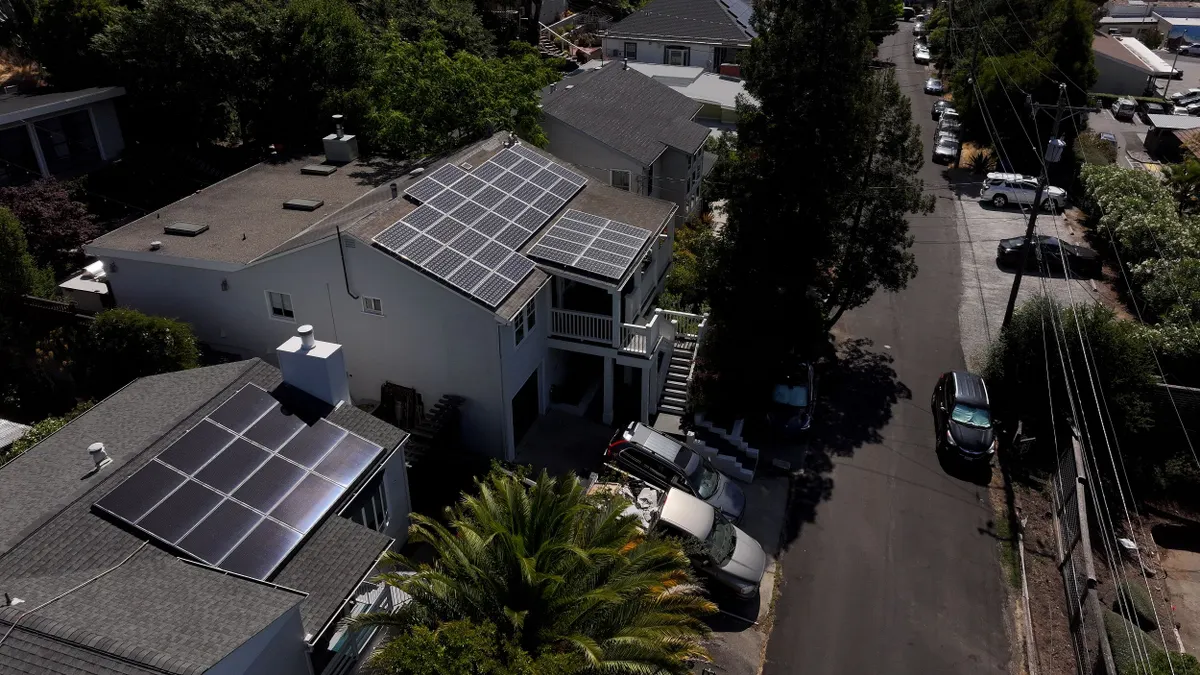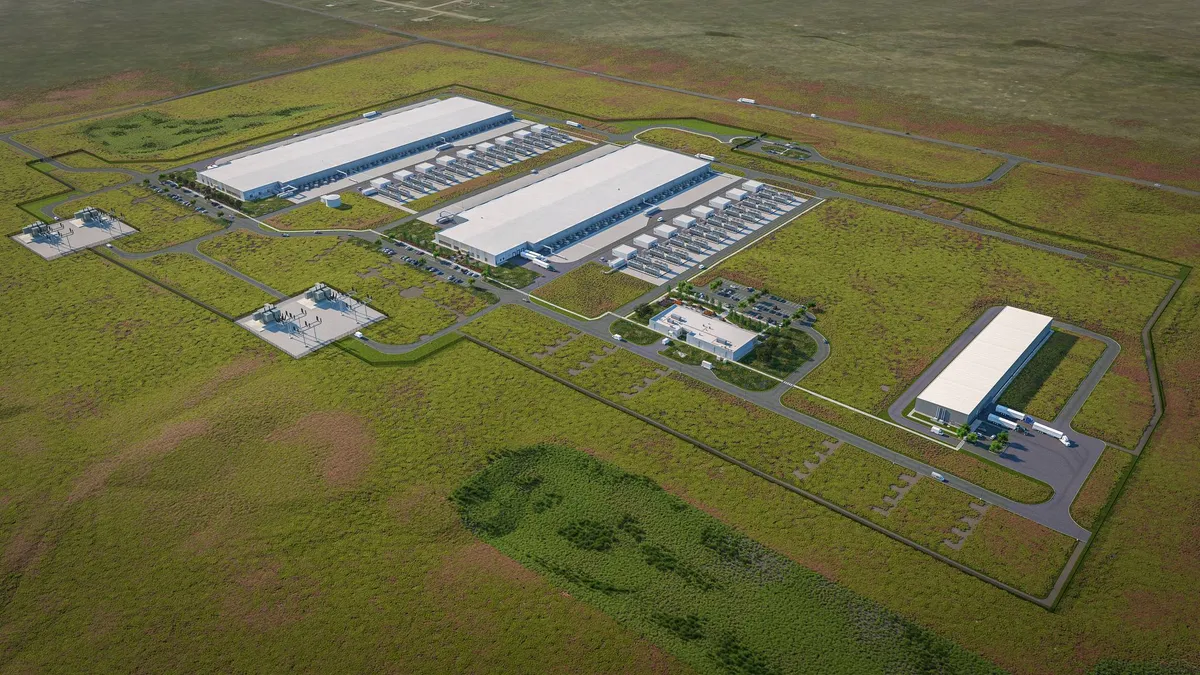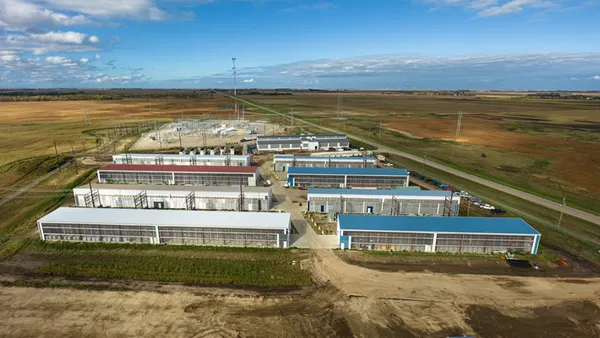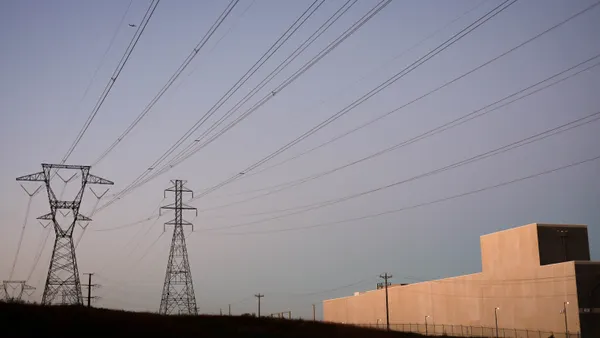Dive Brief:
- A recent request by the Minnesota Public Utilities Commission (PUC) and the Department of Commerce to get utilities involved in the state's economic recovery process prompted Xcel Energy to propose the acceleration of nearly $3 billion in energy investments, highlighting the importance of regulatory signals for utility-led job creation initiatives.
- Xcel responded on Tuesday to a PUC docket that requested regulated entities to submit a list of investments to spur job growth and economic recovery from the coronavirus pandemic, following a memo from Commissioner Joe Sullivan.
- Xcel's proposal estimates 5,000 new jobs in the state along with actions to lower customer bills by $25 million this summer. The utility also pitched a program to help commercial customers maintain low rates as workers return to facilities.
Dive Insight:
State officials around the country are working on providing a stimulus and aiding in economic recovery in parallel with federal efforts.
The move by Minnesota regulators prompted all utilities in the state to submit their own proposals for action.
"I don't think [utilities] would have brought this forward without some signal from the regulators. I think they needed that commission requirement [to file]," Mike Bull, director of policy and external affairs at the Minnesota-based Center for Energy and Environment, told Utility Dive.
Xcel did not respond in time for publication to confirm whether its subsidiaries, ranging from New Mexico to Michigan, have similar proposals to speed up investments.
"We thank Governor Tim Walz, our regulators and commissioners for the leadership on this issue and remain committed to working with them along with our communities, policymakers, stakeholders and employees to move these projects forward quickly to help all Minnesotans," said Ben Fowke, Xcel chairman and CEO.
Even smaller utilities were "stepping up their energy efficiency efforts, specifically in low-income areas," he added.
Minnesota Power, Dakota Electric Association and Otter Tail Power included solar in their respective proposals.
Xcel's plan would speed up grid improvements and customer incentives that the utility had already planned.
"Even the Xcel proposals were all things that were being considered in some respect; it's bringing them all forward to 'now,' as opposed to playing out over the next five years," Bull said.
The utility proposed a number of investments, including but not limited to:
- $1.2 billion of wind power additions to be solicited in the third quarter of 2020;
- 16 transmission investments that would take six months to two years, totaling about $181 million;
- $6 million in incremental spending on energy efficiency in 2020, leading to an estimated 68 GWh of savings and a net benefit to customers of $110 million;
- providing $100 million to $150 million in rebates over the next five years for the purchase of electric buses by transit operators;
- adding 460 MW of solar capacity at the Sherco coal plant site and an energy storage pilot between 2023-2025, which could top $650 million; and
- a portfolio of distribution projects with accelerated construction dates between 2020 and 2025 for over $600 million of investments.
While Xcel has clean energy goals in Minnesota, the utility also plans to invest $50.8 million across four gas infrastructure projects, of which $41.8 million would be spent in 2020 and 2021.
The utility has retired several fossil-fuel powered units and will proceed with demolitions and site remediation projects starting in 2021 to spur job opportunities, including the closure and remediation of Sherco's coal ash pond.
Besides Minnesota's direct appeal to regulated utilities, New York, California and Hawaii have taken a lead since March to provide relief to power customers and aid in economic recovery, according to Advanced Energy Economy.
New York state regulators and the New York State Energy Research & Development Authority have collaborated on a variety of initiatives, including an energy efficiency push. The agencies have not prompted the utilities to propose investments to address the pandemic conditions, but stakeholders say such deliberations are in the works.
"I know that those are ongoing discussions and that they do have another proceeding open dealing more with the effects of COVID and the economic downturn... on utilities and ratepayers and our clean energy program," Deb Peck Kelleher, director of policy analysis and operations at The Alliance for Clean Energy New York, told Utility Dive.














